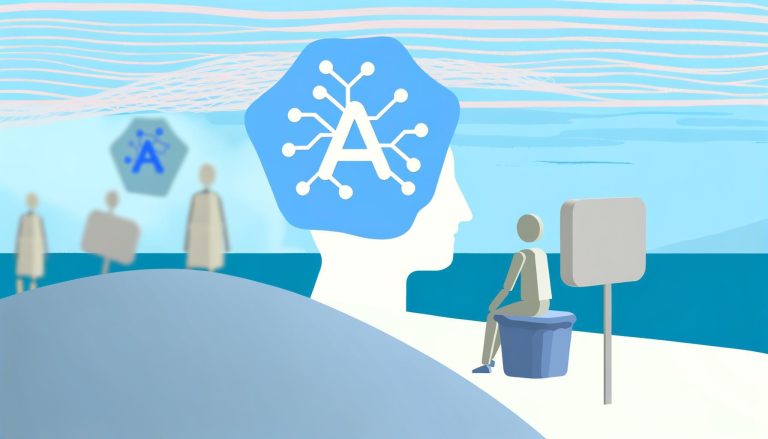In today’s digital age, technology is deeply embedded in our daily lives. While it offers numerous advantages, the pervasive use of digital devices has led to a growing concern: digital addiction. Understanding how to manage this addiction with the help of AI strategies can pave the way for healthier tech use. In this article, we’ll explore the intricacies of digital addiction, its impact, and practical AI-driven strategies that can help maintain a balanced relationship with technology.
Understanding Digital Addiction
Digital addiction, often referred to as internet or screen addiction, involves an excessive reliance on digital devices, including smartphones, tablets, and computers. This dependency can interfere with daily activities, relationships, and overall well-being. Similar to other forms of addiction, digital addiction triggers compulsive behavior and can lead to negative consequences if left unchecked.
The Causes of Digital Addiction
- Dopamine Response: Digital interactions, particularly through social media, can create a reward cycle by releasing dopamine, the ‘feel-good’ neurotransmitter. This cycle can foster habitual use and eventual dependency.
- Accessibility and Convenience: With technology becoming more accessible and integrated into various aspects of life, the ease of use can result in over-dependence.
- Social Validation: The need for social approval and validation, often sought through likes, shares, and comments, can drive excessive usage.
- Boredom and Escape: Some individuals turn to technology to escape from reality, stress, or boredom, leading to addictive patterns.
The Impact of Digital Addiction
The repercussions of digital addiction extend beyond mere screen time. They can affect mental and physical health, relationships, productivity, and more.
Mental Health Effects
Total immersion in the digital world can result in heightened anxiety, depression, and feelings of loneliness. Constant connectivity can lead to an inability to disconnect and unwind, exacerbating stress levels.
Physical Health Consequences
Extended screen time is associated with a sedentary lifestyle, contributing to obesity, poor posture, and eye strain. Sleep disturbances are also common, as the blue light emitted by screens can interfere with the body’s natural sleep-wake cycle.
Impact on Relationships
Excessive digital use can erode personal relationships, as face-to-face interactions are often replaced with virtual ones. This shift can lead to misunderstandings, weakened family bonds, and a sense of isolation.
AI Strategies for Healthy Tech Use
Artificial Intelligence (AI) offers promising solutions to combat digital addiction. By leveraging AI-driven tools and techniques, individuals can better manage their tech use and cultivate healthier habits.
Automated Screen Time Management
AI can help monitor and manage screen time through automated alerts and restrictions. For instance, setting daily screen time limits can encourage users to take necessary breaks and engage in offline activities.
- Use AI-powered screen time apps to set and enforce usage limits.
- Implement ‘Do Not Disturb’ modes during specific hours to minimize distractions.
Personalized Content Recommendations
AI algorithms can analyze user behavior and preferences to make healthier content recommendations. Rather than promoting endless scrolling on social media, AI can suggest educational, creative, or physically engaging content.
- Choose apps and platforms that prioritize enriching and educational content.
- Explore AI-driven fitness and wellness apps that encourage physical activity.
Mindfulness and Wellbeing Apps
AI-driven mindfulness and wellbeing apps offer guided meditation, breathing exercises, and mental health support. These tools can help users develop healthier coping mechanisms and reduce dependency on digital entertainment.
- Incorporate daily mindfulness practices using AI-powered apps.
- Utilize virtual mental health assistants to track emotional wellbeing.
Behavioral Insights and Analytics
AI can provide valuable insights into tech usage patterns, enabling users to understand and modify their habits.
- Analyze weekly or monthly reports to identify excessive usage patterns.
- Use AI-generated recommendations to set achievable wellness goals.
Setting Digital Boundaries
AI can assist in establishing and maintaining digital boundaries. By creating schedules or digital-free zones, users can ensure a balanced tech-life integration.
- Create tech-free zones in the home, such as bedrooms or dining areas.
- Set designated offline hours, such as during meals or before bedtime.
Parental Controls and Family Management
For families, AI-powered parental controls can help manage children’s screen time and ensure access to age-appropriate content. These tools can support the development of healthy digital habits from a young age.
- Use AI parental control apps to monitor and limit children’s screen time.
- Encourage family activities that do not involve screens, fostering stronger bonds.
Benefits and Practical Tips for Using AI to Manage Digital Addiction
Embracing AI strategies for managing digital addiction offers several benefits.
Enhanced Awareness and Control
By utilizing AI tools, individuals gain a deeper understanding of their digital habits, empowering them to make informed decisions and maintain control over their tech use.
- Consistently track and review screen time analytics.
- Monitor the effectiveness of implemented strategies and make necessary adjustments.
Improved Mental and Physical Health
Implementing AI-driven techniques can alleviate the negative effects of digital addiction, including reducing anxiety, enhancing sleep quality, and promoting physical activity.
- Incorporate regular physical activities suggested by AI fitness apps.
- Practice digital detox sessions to improve mental wellbeing.
Conclusion
Digital addiction is a growing concern in our increasingly tech-centric society, but with the aid of AI, it is possible to foster healthier tech habits. By leveraging AI strategies, such as automated screen time management, personalized content recommendations, mindfulness apps, behavioral insights, digital boundaries, and parental controls, individuals can achieve a balanced relationship with technology. Understanding and managing digital addiction through these methods can lead to enhanced mental and physical health, improved relationships, and a greater sense of overall well-being.
If you find it challenging to keep track of your digital habits and set goals for healthier tech use, consider using the Zenora App. It provides mood and habit tracking through journal entries, insightful statistics to identify patterns, and goal-setting features to help you thrive in a balanced and informed way.





